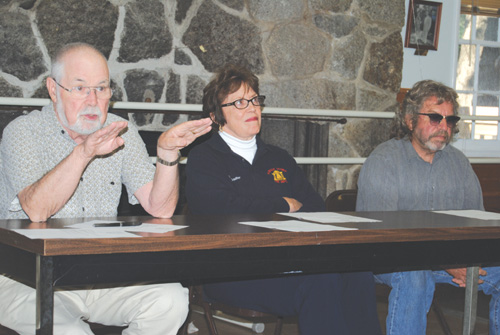For the second consecutive year, Riverside County Emergency Medical Services Agency (EMSA) has denied American Medical Response’s (AMR) request to extend the expiration date on its contract with the county. Current expiration date is June 30, 2026.
The first denial was in March and it was the first time since 2015 — when the county awarded the emergency ambulance service contract to AMR — that an extension request had been rejected.
Each year, AMR submits an annual report EMSA uses to review compliance with the contract and whether it should be extended. In January 2015, the board of supervisors awarded a five-year contract, from July 1, 2015 through June 30, 2020. There are provisions for extending the contract’s length one year at a time. For the first six years, AMR received the annual permissible extension.
However, in March, based on AMR’s performance from July 1, 2021 through June 2022, the county did not grant AMR’s request for another year’s extension. And at the Nov. 7 board of supervisors meeting, Bruce Barton, director of the Emergency Management Department, and staff explained the reasons for denying an extension this year.
For the 2021-22 period, the county found that AMR was not meeting its response requirements, especially for Advance Life System (ALS) calls. While these responses improved during 2022-23, they were still below the contract requirement of 91%.
While Barton and Dan Bates, EMSA administrator, noted improvements in many areas, they were still required to deny another contract year extension based on the 2022-23 AMR performance.
“After careful review of the documentation submitted, AMR did not meet the requirements for an earned annual renewal and the current Ambulance 9-1-1 Advance Life Support emergency ambulance service contract extension remains through June 30, 2026,” Bates told the board.
“The County’s Emergency Medical Services Agency has denied AMR’s request to extend the contract’s expiration date,” EMSA concluded in its report to the board.
AMR did not meet the minimum for enhanced response times set in the contract although Bates noted there has been substantial improvement since February.
“While over the past several years, our health care system has seen challenges, the road to recovery has been progressing,” he told the board.
Another requirement that AMR did not meet was the number of responses with a full complement of ALS staff, meaning a paramedic was on the ambulance. However, Bates pointed out that the percentage of responses that were noncompliant has declined from 44.4% in the second half of 2022 to 16.6% in the first six months of 2023. In June it was down to 6.8%.
He added that improvements have continued since July to where “it’s a rare occurrence when we don’t see that mandate in compliance.”
During the next year, EMSA and AMR will work to improve performance. Together they will focus on efforts to improve transfer of care and to reduce offload delays at hospitals. More endeavors to promote using emergency medical dispatch and resource allocation will occur. And support for local initiatives to improve operational readiness will be emphasized.
Bates said the hospitals are committed to improvement. Currently, ambulances are held at hospitals for about 300 hours per week. This is equivalent to about 25 ambulances, Bates stated. But a year ago, the delay was about 1,500 hours each week.
Jeremy Schneider, regional director of operations for AMR, told the board that AMR has hired more than 30 full-time paramedics this year.
As the presentation ended, board chair Kevin Jeffries (1st District) was pleased that wall time was improving. “But still a handful of hospitals are not capable of accepting a patient in a timely manner.”
As he finished the presentation, Bates told the board that EMSA plans to have its Strategic Plan revised by the end of the fiscal year, June 2024.





